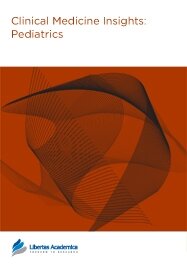

Publication Date: 08 Jul 2010
Type: Original Research
Journal: Clinical Medicine Insights: Pediatrics
Citation: Clinical Medicine Insights: Pediatrics 2010:4 19-24
doi: 10.4137/CMPed.S4610

Background: The ages of onset of pubertal characteristics are influenced by genetic, geographic, dietary and socioeconomic factors; however, due to lack of country-specific norms, clinicians in Saudi Arabia use Western estimates as standards of reference for local children.
Aims: The aim of the Riyadh Puberty Study was to provide data on pubertal development to determine the average age of onset of pubertal characteristics among Saudi boys.
Methods: Cross-sectional study among male school children in Riyadh, Saudi Arabia, in 2006, 542 schoolboys, aged 6 to 16 years old, from diverse socioeconomic levels were selected into the sample using a cluster sample design. Tanner stages were ascertained during physical examination by pediatric endocrine consultants, and also trained pediatric residents and fellows.
Results: The mean age (standard deviation) at Tanner Stages 2, 3, 4, and 5 for pubic hair development of Saudi boys was 11.4 (1.6), 13.3 (1.3), 14.4 (1.0) and 15.1 (0.8) years old, respectively. For gonadal development, the mean age (standard deviation) at stages 2, 3, 4, and 5 were 11.4 (1.5), 13.3 (1.2), 14.3 (1.1) and 15.0 (0.9) years old, respectively.
Conclusion: The ages of onset of pubertal characteristics, based on gonadal development, among Saudi boys are comparable to those reported in Western populations.
PDF (477.51 KB PDF FORMAT)
RIS citation (ENDNOTE, REFERENCE MANAGER, PROCITE, REFWORKS)
BibTex citation (BIBDESK, LATEX)
XML
PMC HTML

The publishing experience in Libertas Academica journals is unique. Readers can feel satisfied that publications are peer reviewed. Authors follow simple steps to reach final stage of publication. All readers have access to articles. Journal subscriptions or medical library access is not needed.
Facebook Google+ Twitter
Pinterest Tumblr YouTube